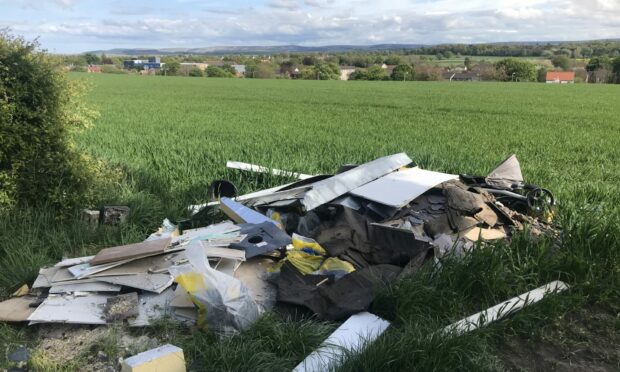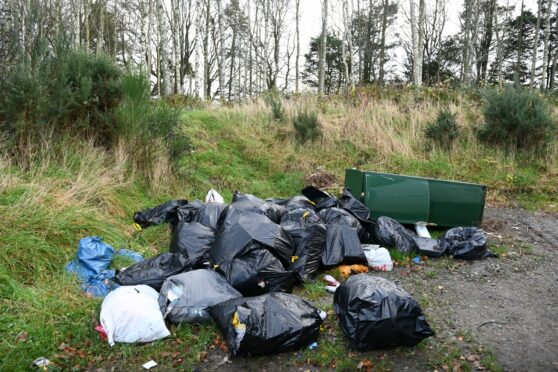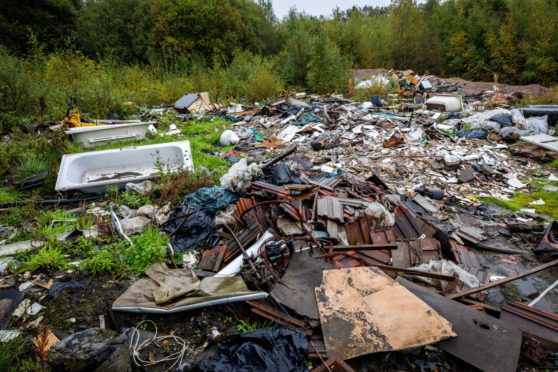Scotland’s landowners say proposed legislation that would impose tougher penalties for flytipping offences is long overdue.
In its response to a proposed Member’s Bill in the Scottish Parliament, the rural business organisation, Scottish Land & Estates (SLE), said it welcomed improvements in the way flytipping incidents would be recorded as well as strict liability for those who dispose of the waste.
SLE’s policy access and visitor management policy adviser, Simon Ovenden, added:
“Flytipping is a national shame which became significantly worse during the pandemic.
“It will take a collective effort to tackle this blight and the proposals set out by Murdo Fraser MSP would go some way to providing the tools needed to deal with flytipping offenders as well as providing support for those who find waste – often dangerous and hazardous – dumped on their land.
“We fully support efforts to create a national database to monitor and record flytipping incidents so that it can be used as a tool that will aid detection and support the prosecutions of offenders.
“Where flytipping has occurred across local authority boundaries, there needs to be a method of collaborative working developed which currently does not exist.”
Mr Fraser also wants to change legal liability so that victims of flytipping are not also legally responsible for removing the waste.
Mr Ovenden said: “This is possibly the only crime in Scotland where the victim, in this case the landowner, can be held financially responsible and threatened with prosecution.
“If waste contains hazardous waste such as asbestos, a seven-day warning can be issued by local authorities, with the land manager additionally being threatened of possible prosecution.”
The bill proposes that local authorities should be permitted to remove waste from private land and, where possible, recoup costs from the offender and generator of the waste.
Mr Ovenden said that in the majority of cases the originator of the waste was also responsible for the offence.
He added: “All too often, the cheap option is taken when hiring an individual or company to dispose of waste and this leads to materials being flytipped rather than being properly disposed of. If these changes were introduced, an onus would be placed on a waste customer to only hire a licensed contractor which would then help to drive out criminals from the industry.”



